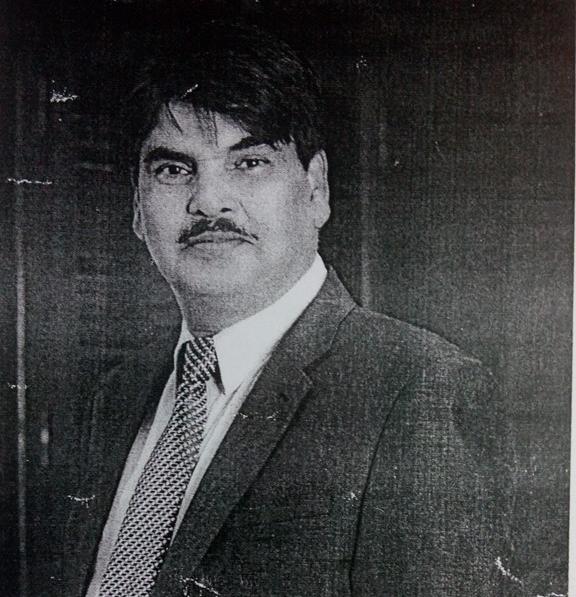
Bar Council of India (BCI) chairman Manan Kumar Mishra has called for a nationwide lawyers’ strike on 31 March after meeting with Delhi bar associations, Live Law reported Mishra as saying yesterday.
Mishra told LiveLaw:
The BCI members had a meeting with the members of Co-ordination Committee of bar associations on Sunday at New Delhi. It was unanimously decided that on March 31, the lawyers will go for pen down protest against the Apex recommendatory body’s draft.
However, member of the Delhi Bar Association and Coordination Committee of All District Courts Bar Associations of Delhi, Sunil Dahiya, has circulated messages to other bar association members requesting them not to join in Mishra’s call for a strikes against the Law Commission.
“I would like to request all members not to allow our further agitation to [be] swayed or steered by filmsy (sic) leaders like [Manan] Mishra,” Dahiya has written in the message.
Dahiya’s message, as received on WhatsApp this morning stated:
I certainly believe that Chairman BCI has played fraud with the legal fraternity of the entire country, firstly, by sending arbitrary and draconian recommendations to the law commission against the democratic right of the Advocates.
Secondly, by keeping the entire Legal fraternity in dark by stealthily allowing Law Commission to send all those [recomendations] to the Hon’ble Law Minister on the very day when we were having demonstrations i.e on 23 March 2017, Now it’s high time to handle such sensitive issue and fight out such forces so as to protect our democratic right to Strike whenever needed.
I would like to request all members not to allow our further agitation to b swayed or steered by filmsy leaders like Manon Mishra.
Let’s now b prepared for a big fight to keep up our rights and maintain the dignity and independence of Bar.
Dahiya is a member of the Coordination Committee of All District Courts Bar Associations of Delhi, which led the allegedly 4000-lawyer strong protest in front of the BCI’s office on Thursday, 23 March.
The protesting lawyers were demanding Mishra’s resignation on the ground that under him the BCI had recommended draconian amendments curbing lawyers’ rights to strike, in the Advocates Act 1961.
The facts: Law Commission took a softer position on strikes than the BCI itself
Mishra had told LiveLaw yesterday that the Law Commission had ignored the BCI’s suggestions for reform of the legal profession, which had been ordered by the Supreme Court to better regulate misconduct in the profession. Mishra said:
Earlier this month, BCI had suggested certain mechanism for the lawyers resorting to strike but those BCI suggestions were ignored and completely sidelined by the commission.
In reality, however, the BCI’s suggested measures against lawyers’ strikes were far more aggressive than the Law Commission’s eventual recommendation.
The BCI had recommended a complete ban on lawyer strikes’, and heavy fines of up to Rs 5 lakh on lawyers guilty of professional misconduct such as strikes, boycotts and abstaining from work, among other things. The BCI had submitted this recommendation to the law commission on 10 March 2017.
Despite Mishra’s protestations to the contrary, the law commission’s 266th report actually took a softer stance.
While the commission strongly condemned lawyers striking as a menace plaguing the profession and causing the loss of hundreds of court working days, the only actual reference to lawyer strikes in its suggested Advocates Act amendments recommend that persons suffering a loss due to advocates’ strikes, can make a claim for compensation “in the appropriate forum” (which in any case, is currently a matter of legal right).
It is surprising that the Commission recommended so little explicitly against strikes, considering passages such as these in its report:
The case of Uttar Pradesh appears to be the worst. The figures of strike for the years 2011-2016 in the subordinate courts are alarmingly high. In the State of Uttar Pradesh, the District courts have to work for 265 days in a year. The period of strike in five years period in worst affected districts has been as - Muzaffarnagar (791 days), Faizabad (689 days), Sultanpur (594 days), Varanasi (547 days), Chandauli (529 days), Ambedkar Nagar (511 days), Saharanpur (506 days) and Jaunpur (510 days). The average number of days of strike in eight worst affected districts comes to 115 days a year. Thus, it is evident that the courts referred to hereinabove could work on an average for 150 days only in a year.
Law Commission recommendations against strike softer than BCI’s
| Law Commission recommendation on strikes: | Bar Council of India recommendation on strikes |
| Law Commission discussion of strike regulations (which was not actually included in any draft amendments):
The Law Commission also did not explicitly include strikes under its new definition of advocates’ “misconduct”. | The BCI’s draft recommendations on strikes go further:
|
The Law Commission’s only amendment to the Advocates Act with respect to strikes, proposed:
| On a complaint against advocates, bar councils to:
|
Last week Mishra had first threatened on Facebook major lawyer protests, and possibly strikes, against the Law Commission and government, if the BCI’s disciplinary powers were to be curtailed.
threads most popular
thread most upvoted
comment newest
first oldest
first
threads most popular
thread most upvoted
comment newest
first oldest
first